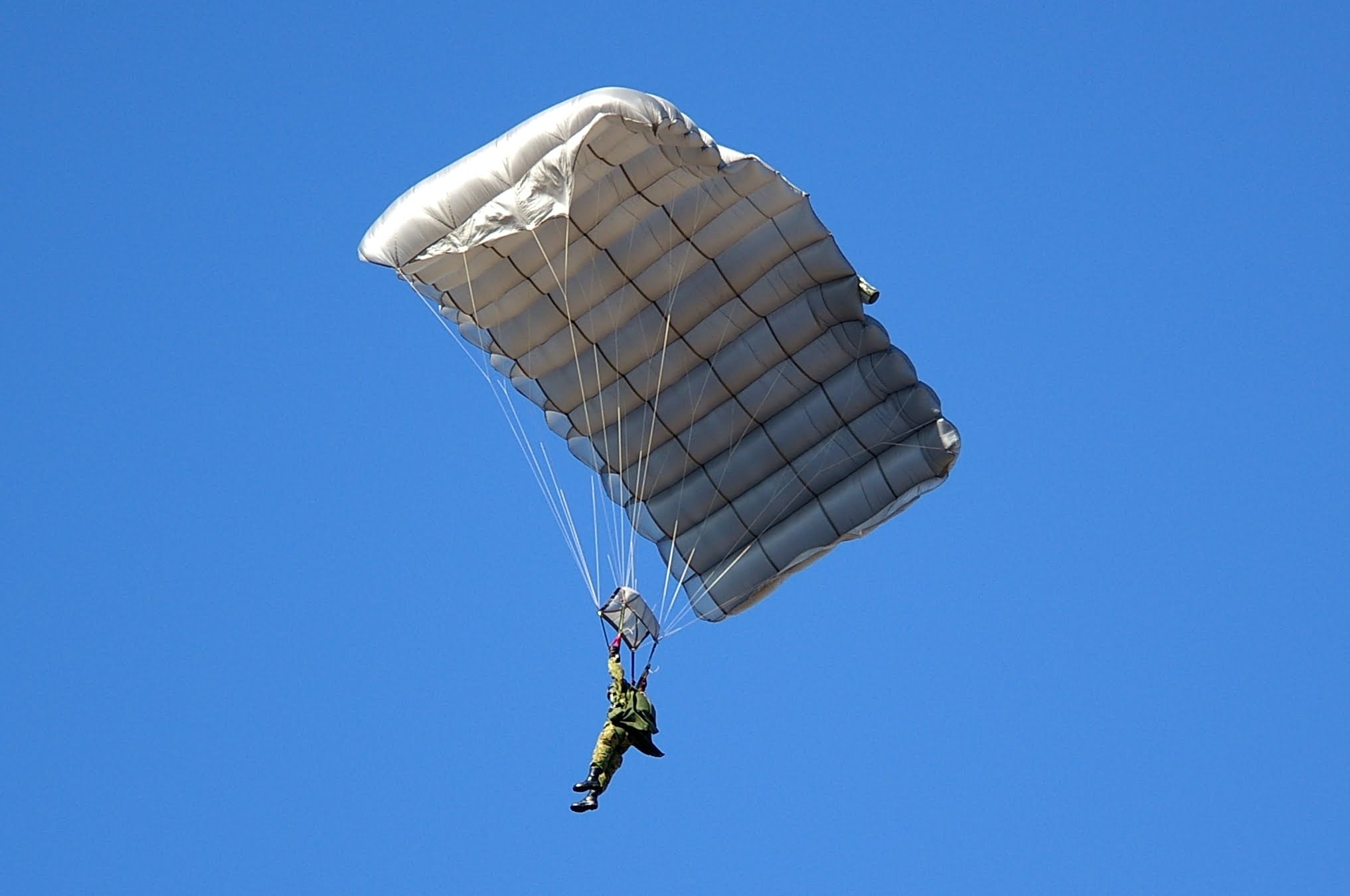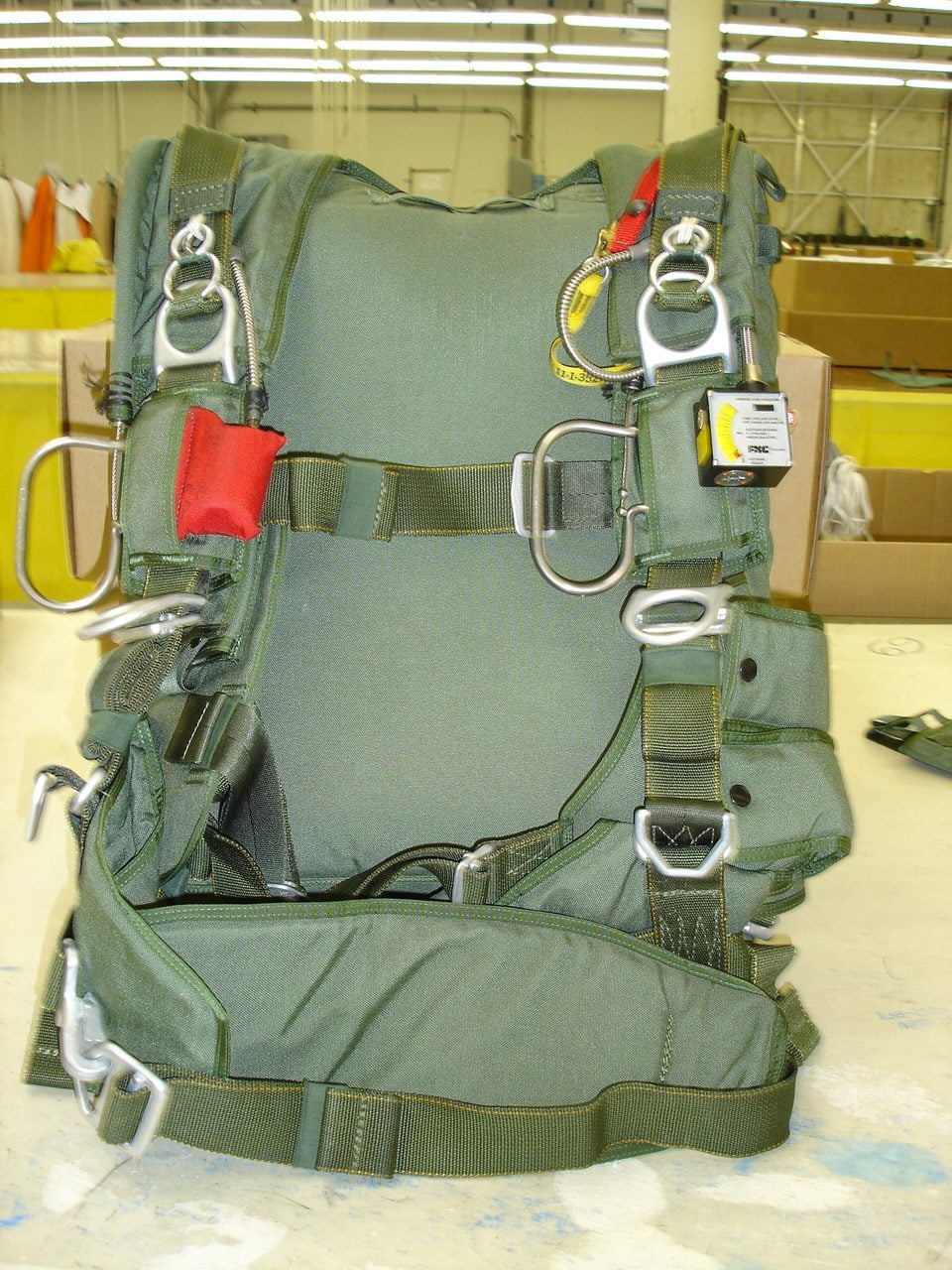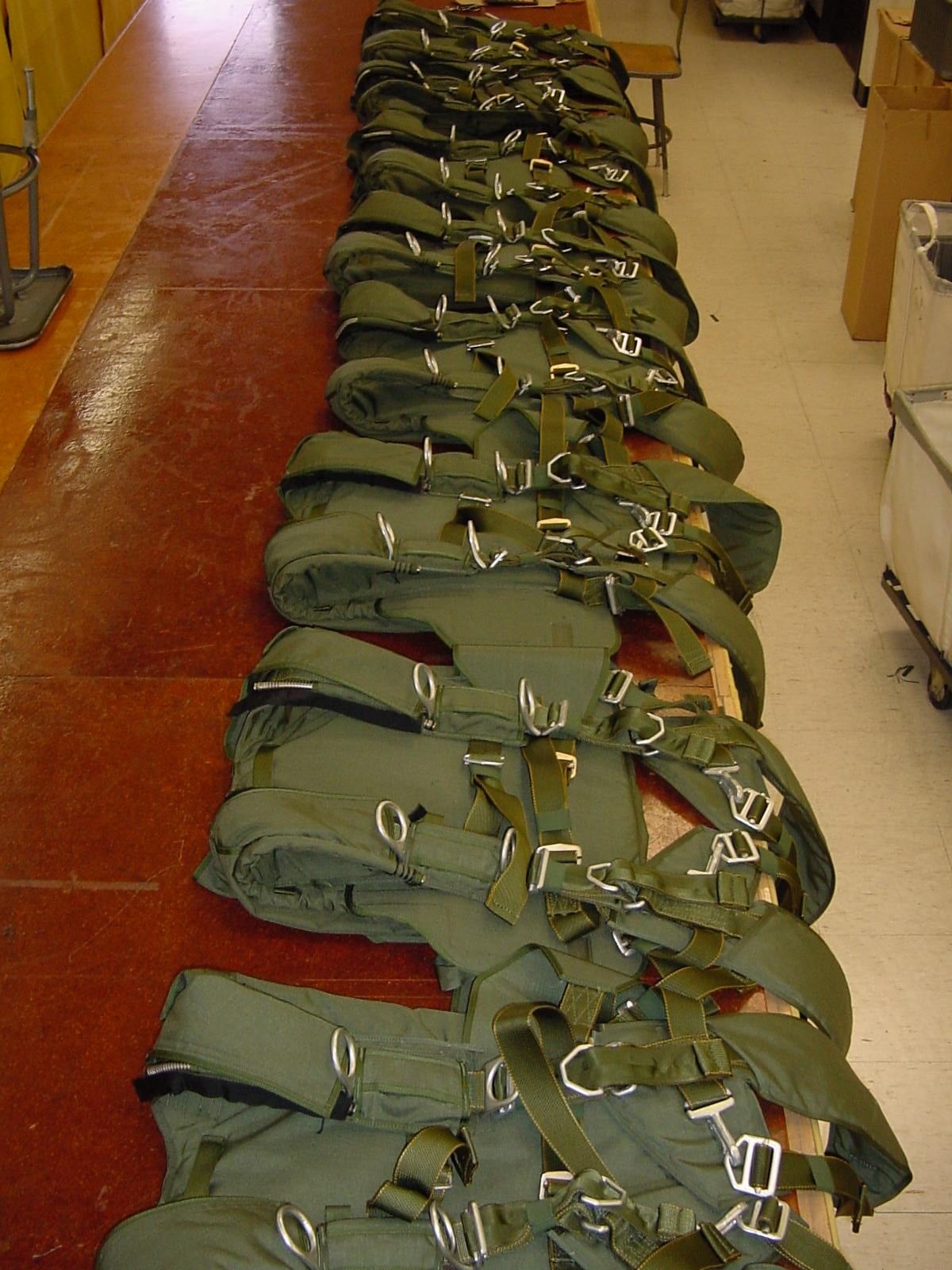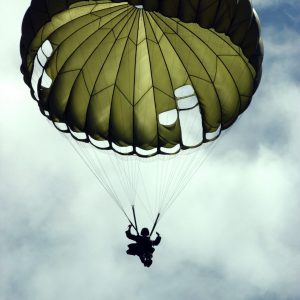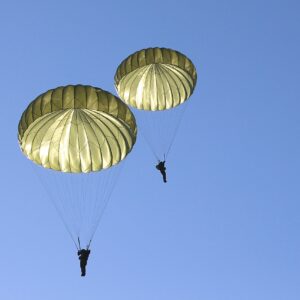MC-4 Ram Air Free-Fall Personnel Parachute System
The MC-4 Ram Air Free-Fall Personnel Parachute System (front and back view) is designed to place Army personnel into areas of mission interest. An MC-4’s inherent gliding capability offers important potential for minimizing detection during entry or changing the landing area during descent in order to avoid capture. The high altitude standoff capability significantly reduces aircraft vulnerability and detection.
The various modes of the MC-4 parachute use, such as High Altitude High Opening (HAHO) and High Altitude Low Opening (HALO), provide versatility and opportunity for controlling descent which is not possible with standard (round) or less efficient gliding parachute designs.
The MC-4 parachute system is a dual parachute system with similar main and reserve canopies. Both parachutes are located on the back of the parachutist leaving the front clear for mounting additional equipment or instrumentation. The principles used in its construction allow it to have high forward speed, a 3 to 1 glide ratio, and excellent maneuverability. In an emergency, the ram air system uses a single point canopy release to jettison the main canopy and deploy the reserve canopy. The reserve parachute uses a free bag deployment system, a high drag pilot chute, and an 18-foot bridle line with deployment assist pockets; each designed to increase the reliability of the reserve parachute in an emergency.
Additional information
| NSN | 1670-01-306-2100 |
|---|---|
| Lift/Drag Ratio, L/D | 3 to 1 |
| Span | 28.5ft |
| Chord | 13ft |
| Area | 370 sq. ft. |
| Maximum Suspended Weight | 360 lbs. |
| Forward Speed Range | 10 to 25 mph |
| Rate of Descent | Variable Full Flight to Fully Flared Landing |
| Full Flight | 14 to 16 fps |
| 50% Brakes | 6 to 10 fps |
| 100% Brakes | 2 to 6 fps |
| Fully Flared Landing Touchdown | 0 to 4 fps (if executed properly) |
| Deployment Altitude Range | 2000 ft. AGL to 25,000 ft. MSL |
| Deployment Velocity Range | 0 to 150 KIAS |
